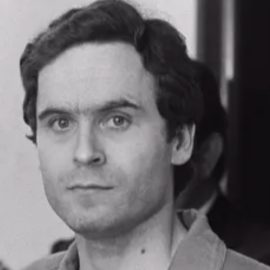

This article is an excerpt from the Shortform book guide to "The Snowball" by Alice Schroeder. Shortform has the world's best summaries and analyses of books you should be reading.
Like this article? Sign up for a free trial here.
What is Warren Buffett’s leadership style? How does Buffett lead by example?
Warren Buffett’s wealth isn’t the only thing to look up to about him. According to Alice Schroeder in The Snowball, he also has an impressive leadership style that makes people want to be like him.
Here’s what you can learn from Warren Buffett’s leadership style.
Accumulating Influence: Leading by Example
Warren Buffett’s leadership style wouldn’t be possible without his wealth or reputation. Just as Buffett’s wealth grew throughout his life, so did his reputation. And just like his wealth, his reputation was built through slow perseverance and integrity. Buffett’s growing influence gave him a path to push for change through political activism and his role as a publisher, and (once people saw him as a titan of the Market) to advocate for equitable fiscal policies.
By the ’60s, Buffetts’ net worth had risen so high that Susie suggested that he should shift his focus from making money and start giving back to the community. In particular, Susie was a civil rights proponent, while Buffett (like his father before him) was intent on preventing another World War. However, Schroeder argues that Buffett saw himself as an “idea man,” rather than an active philanthropist. Making money was his gift, and his intent was to do so, earning as much as he could in his life before giving it all away at the end.
(Shortform note: Susie Buffett’s philanthropic activism is a trait she’d pass on to her daughter, Susan Alice Buffett, founder of the Sherwood Foundation, which funds social justice programs in Nebraska. Susan recalls going with her mother to take part in community service activities, stating that the elder Susie Buffett was more than just a “checkbook philanthropist.” In 2020, Susan Buffett carried on her mother’s legacy by playing an active role in revitalizing North Omaha, a historically underserved, low-income community.)
Nevertheless, Buffett and Susie both became active in politics and civil rights issues. While Susie worked heavily with the African American community, Buffett took personal steps against the antisemitism prevalent in Omaha’s elite. Despite his father’s staunch Republican leanings, Buffett became involved with the Democratic Party, actively supporting candidates in the 1972 election. Schroeder says Buffett’s interest in politics waned, but the election taught him the power of the press, which he’d employ through the newspaper he owned.
One way he employed the power of the press was by commissioning The Omaha Sun to do an investigation into Boys Town, a Catholic-run shelter for homeless boys in Omaha. Buffett did some of the investigating himself, looking into Boys Town’s tax returns, and discovered that the shelter was taking in millions of dollars in donations every year with no plan for what to do with the money. Schroeder says that to Buffett, this was an unforgivable failure of stewardship. The Omaha Sun broke the story in 1972 and won the Pulitzer for investigative journalism.
(Shortform note: The Omaha Sun’s article on Boys Town wouldn’t be the last link between Buffett and Omaha’s famous shelter for children. In 2018, one of Berkshire Hathaway’s insurance companies, Applied Underwriters, acquired 500 acres of land west of Omaha, 60% of which had previously been owned by Boys Town. A sizable chunk of the Boys Town property was slated to become an office park for the Buffett-owned company, with the rest to be developed for retail and residential development.)
Buffett and the Market
Civil rights, politics, and the media weren’t the only forums where Buffett had sway. Buffett’s influence on the market grew such that by the end of the ’80s, the SEC gave him permission not to disclose his trades for a year. Schroeder writes that the mere fact of Buffett investing in a company would push its value higher, with the common wisdom being that if Warren Buffett was buying a stock, that stock must be underpriced. On several occasions, companies used this to their advantage. The fact that Buffett never engaged in hostile takeovers made him attractive as a buyer, and public knowledge of his investments could halt a company’s downward slide.
(Shortform note: Other investors have referred to this influence as the Warren Buffett Effect. Modern examples of this effect in action include TV host Jim Cramer’s push to invest in banking stocks in response to Buffett’s increased shares in Bank of America. In 2020, United Airlines blamed the failure of a bond offering on Berkshire Hathaway divesting its airline stocks, a case of the Buffett Effect working in the negative direction.)
In the 2000s, Buffett started cashing in on his influence to speak out on fiscal topics and influence public policy. He argued against repealing the estate tax because of his disdain for inherited wealth, and he pushed for campaign finance reform because he was against money buying power. Schroeder says he fought against the practice of using stock options as a form of compensation, which let CEOs’ pay soar beyond their publicly listed earnings.
In the latter instance, accounting rules changed so that CEO salaries were accurately reported, revealing the staggering disparity in pay between executives and workers. Buffett’s actions made him a hero to many, except those among the elite who saw him as a traitor to his class. Buffett didn’t care. As devoted as he was to the pursuit of wealth, Schroeder says that his integrity was even more important.
Stock Options as CEO Compensation
In Lawrence A. Cunningham’s introduction to The Essays of Warren Buffett, he explains that Buffett’s view on stock options is more nuanced than Schroeder suggests. Buffett says that awarding CEO stock options was originally done with the best intentions—that of aligning management’s interests with those of a company’s shareholders. However, Buffett argues that in practice stock options allow CEOs to earn money simply by holding onto them, instead of by making the best use of a company’s capital.
Today, many corporations still award stock options as a way to boost CEO compensation, despite the fact that there’s no correlation between CEO pay and a company’s prosperity. A 2021 study by Harvard Business Review showed that stock options are only effective in situations where CEOs might otherwise misuse company resources for personal gain.
Buffett In Crisis: The Strength of Integrity
More than any other financial giant, Buffett was characterized by his simple honesty. While his integrity wasn’t a shield against every storm in life, it often provided a guiding star for himself and those around him. Buffett’s integrity enabled him to salvage the Salomon Brothers investment firm and let him speak out as a voice of reason during the 2008 financial crisis.
In 1991, Buffett’s integrity went on the line when Salomon Brothers (which Buffett had rescued in 1986) was caught violating regulations on bidding for government bonds. When it came out that Salomon’s CEO hadn’t reported the misdealings to the Federal Reserve or to the company’s board, the government threatened to cut off Salomon completely, effectively killing the business. Salomon’s management resigned as nearly $150 billion in short-term debt came due. Schroeder recounts that as the most respected investor, Buffett found himself thrust into the role of temporary chairman of the board.
By taking charge of a firm mired in scandal, Buffett risked his hard-won reputation. However, he feared that if Salomon defaulted on its debts, a global financial crisis would ensue. Schroeder says that Buffett begged the government to allow the firm to keep trading in bonds. In return, Buffett instituted a policy of absolute transparency toward the regulators investigating Salomon’s wrongdoing, waiving attorney/client privilege for the company. When Buffett testified to Congress, he took a hardline stance in favor of total honesty and corporate accountability, which prevented Salomon’s total collapse and painted Buffett as a hero in the eyes of many.
(Shortform note: By completely opening Salomon’s doors to regulators, Buffett instituted a policy of transparency that was unheard of at the time and is still rare today. However, unfiltered honesty has modern proponents in the business world. In Principles: Life and Work, Bridgewater founder Ray Dalio espouses his company’s policy of extreme transparency. In Radical Candor, Kim Scott says that organizational cultures based on openness rely on building trust between management and workers while challenging each other with honest criticism.)

———End of Preview———
Like what you just read? Read the rest of the world's best book summary and analysis of Alice Schroeder's "The Snowball" at Shortform.
Here's what you'll find in our full The Snowball summary:
- A biography of one of the wealthiest people in the world, Warren Buffett
- Why Buffett is known for his honesty and wisdom, just as much as his wealth
- How Buffett's life was shaped by his family, his teachers, and the era into which he was born






